
Seven more internal selections complete the line-up for ESC 2018

Seven more internal selections complete the line-up for ESC 2018
As the submission deadline approached, the last national finals were taking place and the Heads of Delegation were arriving for their regular March meeting, seven countries presented their internally selected entries for the 2018 Eurovision Song Contest.
Cesár Sampson had been revealed as Austria‘s ESC 2018 representative back in December, but it took until last week for his song “Nobody But You” to be revealed. While Cesár will be up against some stiff competition in the second half of the first semi-final on Tuesday 8 May, he will undoubtedly hope that his involvement in the extremely successful Bulgarian entries in 2016 and 2017 serves as a good omen.
Still the reigning champion in terms of ESC victories, Ireland have had a tough time of it lately, failing to qualify in each of the last four contests and making just one appearance on the left-hand side of the scoreboard since 2006. Broadcaster RTÉ is pinning its hopes for 2018 on Ryan O’Shaughnessy, a singer-songwriter with plenty of pedigree when it comes to televised music shows, having appeared in various capacities on The Voice of Ireland, Britain’s Got Talent and The Hit. His entry “Together” comes with an on-message video that is already making an impression in the fan world.
Speaking of fan attention, Israel had already been making waves ever since Netta Barzilai, a singer who typically incorporates live vocal looping into her performances, won this year’s edition of The Next Star to find the country’s representative for the Eurovision Song Contest. Her song, which comes from the same stable as recent Israeli entries “Golden Boy” and “Made Of Stars”, lives up to those expectations with a quirky blend of #MeToo-compliant lyrics and chicken noises. “Toy” swiftly established itself as the comfortable favourite on the betting markets and will certainly to be one to keep an eye on as the various pre-ESC concerts take place around Europe.
Russia returns to the contest after withdrawing last year following a high-profile controversy over their selected artist, Julia Samoylova. At the time, she was promised the ticket to ESC 2018 as compensation for that withdrawal, but few seriously expected the powers that be at Russian TV to make good on that claim. It’s to their credit, then, that Julia will indeed represent the country in Lisbon in May with “I Won’t Break”. Blessed with a much more contemporary sound than last year’s “Flame Is Burning”, the Russian entry for 2018 also comes with a video that appears to seek to cover up Julia’s disability, although there’s probably an element of “damned if you do, damned if you don’t” at play there. Nevertheless, it’ll be interesting to see how they choose to stage the entry at the contest proper, not least since Julia’s voice seems to be largely absent from the song’s chorus in the studio version.
Like Ireland, Macedonia are on a rotten run in the competition, last appearing in the grand final back in 2012 with Kaliopi’s “Crno i belo”. Their internally selected artist for the 2018 contest, the duo Eye Cue, have been known to cover the odd Kaliopi song in their time, but their Eurovision entry “Lost And Found” is rather more conventional – well, apart from the bit where it decides to go into a reggae rhythm for no obvious reason. Hey, why not.
Momentum is a powerful thing, and so Bulgaria have been riding high with the bookmakers all season long following their fourth and second places in the last two contests, even though their entry for 2018 was never likely to appear until right before the deadline. After all that anticipation, Monday’s announcement met with furrowed brows in some quarters. The Bulgarian entry for Lisbon is “Bones” by Equinox, a five-member band (three Bulgarians, two Americans) assembled specially for the occasion. It’s a dark and perhaps slightly inaccessible piece, and this kind of (not-so-)supergroups has a history of underperforming at the contest, from Switzerland’s six4one in 2006 through to Armenia’s Genoc… erm, Genealogy a few years ago. In its defence, though, “Bones” sounds like it could be staged as a more coherent piece, with the potential for a couple of the singers to take the lead and give the entry a more focused visual identity. And if we’ve learned anything from the last two years, it’s that Bulgaria have learned how to present an entry. Nevertheless, this could be one to watch for “hot mess potential” at the first rehearsals, not least since the video is giving nothing away at this stage.
You can always count on Georgia to deliver some variety, and so it proved with the 43rd and final song to be revealed for this year’s Eurovision Song Contest. “Sheni gulistvis”, which somehow translates as “For You” (aren’t languages wonderful?), is a slow and almost hymn-like choral piece by the ethno/folk band Iriao and could hardly be more different to the other contenders in the second half of the second semi-final on Thursday 10 May (not least Hungary – go on, organisers, you know you want to put them back-to-back!). Whether that standout factor will translate into qualification for the final remains to be seen, but you have to commend Georgia for the diversity they invariably bring to the competition.
As well as confirming the selected entries, this year’s Heads of Delegation meeting saw the host country, Portugal, randomly selecting its position in the running order for the grand final. Cláudia Pascoal was drawn to sing “O jardim” as the 8th performer of the night on Saturday 12 May. Boa sorte!
Visit our Eurovision Chat!
0 Comments
Visit our Eurovision Chat!
Follow us:
RetroSongHunt 2004: Join us as we celebrate 20 years of #esc!
Our chat community celebrates its 20th anniversary on the first weekend of June – so what better way to celebrate than with a special chat event dedicated to national final songs from back when we began? Read all about it here!
Who will win the Eurovision Song Contest 2024? Our prediction for the final
Happy Eurovision – the big day has arrived! Tonight the grand final of ESC 2024 will be held in Malmö, Sweden. But who will hold the trophy at the end of the show? It’s time for our team’s predictions!
The View from Israel: Unforgettable
There’s one more night left for Eurovision 2024, and Shi is hoping we can all enjoy it a little.
Overthinking the 2024 grand final running order
As the dust settles on the second semi-final, Martin takes a look at what the producers have come up with for the ESC 2024 grand final running order and what – if anything – it might mean…
ESC 2024: The escgo! predictions for tonight’s semi-final 2
Let the team predictions continue! These are the songs that Felix, Shi and Martin think will qualify from tonight’s second semi-final of the 2024 Eurovision Song Contest.
The View from Israel: We rum-de-dum-dum-da
The View is back for Eurovision 2024! Different location, same overthinking – and now it’s time for the second semi-final.
ESC 2024: The escgo! predictions for tonight’s semi-final 1
It wouldn’t be Eurovision without some predictions from our team! These are the songs that Felix, Shi and Martin think will qualify from tonight’s first semi-final.
The View from Israel: Whеn the stars align then I’ll be thеre
The View is back for Eurovision 2024! Different location, same overthinking – starting with the first semi-final!
Gåte from Norway are the winners of ChatVote 2024!
The 20th annual edition of ChatVote is over, and the best song in the forthcoming Eurovision Song Contest is the one from…
ChatVote 2024 is launched! Once again: One Night. One Winner.
It’s time for the 20th edition of our legendary annual event. For our chat regulars, the lines are now open for you to submit your votes!
RetroSongHunt 2004: Join us as we celebrate 20 years of #esc!
Our chat community celebrates its 20th anniversary on the first weekend of June – so what better way to celebrate than with a special chat event dedicated to national final songs from back when we began? Read all about it here!
Who will win the Eurovision Song Contest 2024? Our prediction for the final
Happy Eurovision – the big day has arrived! Tonight the grand final of ESC 2024 will be held in Malmö, Sweden. But who will hold the trophy at the end of the show? It’s time for our team’s predictions!
The View from Israel: Unforgettable
There’s one more night left for Eurovision 2024, and Shi is hoping we can all enjoy it a little.
Overthinking the 2024 grand final running order
As the dust settles on the second semi-final, Martin takes a look at what the producers have come up with for the ESC 2024 grand final running order and what – if anything – it might mean…
escgo! on Twitter

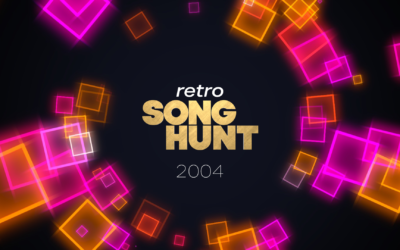
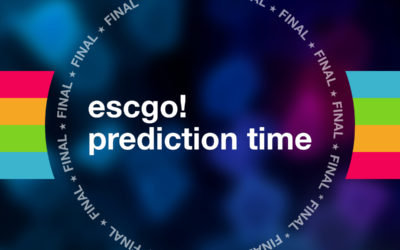
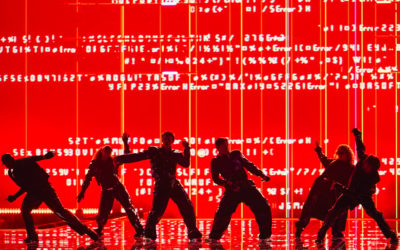
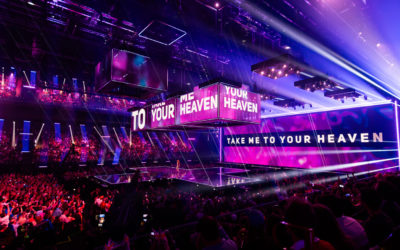
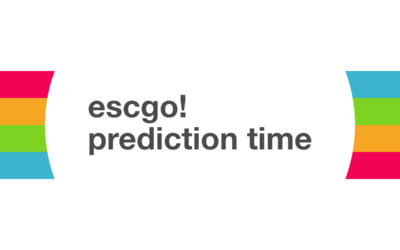
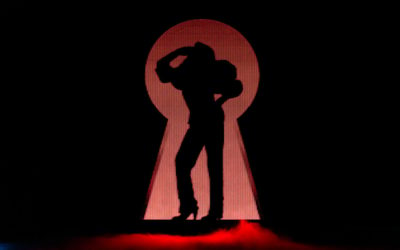
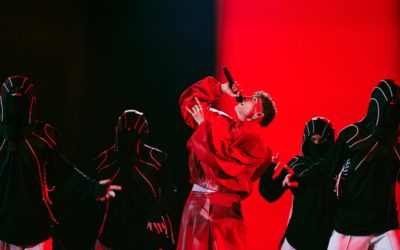
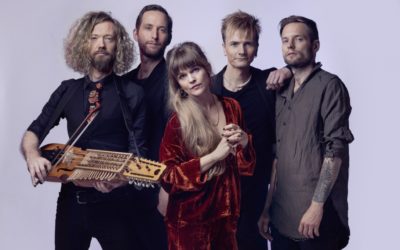

0 Comments